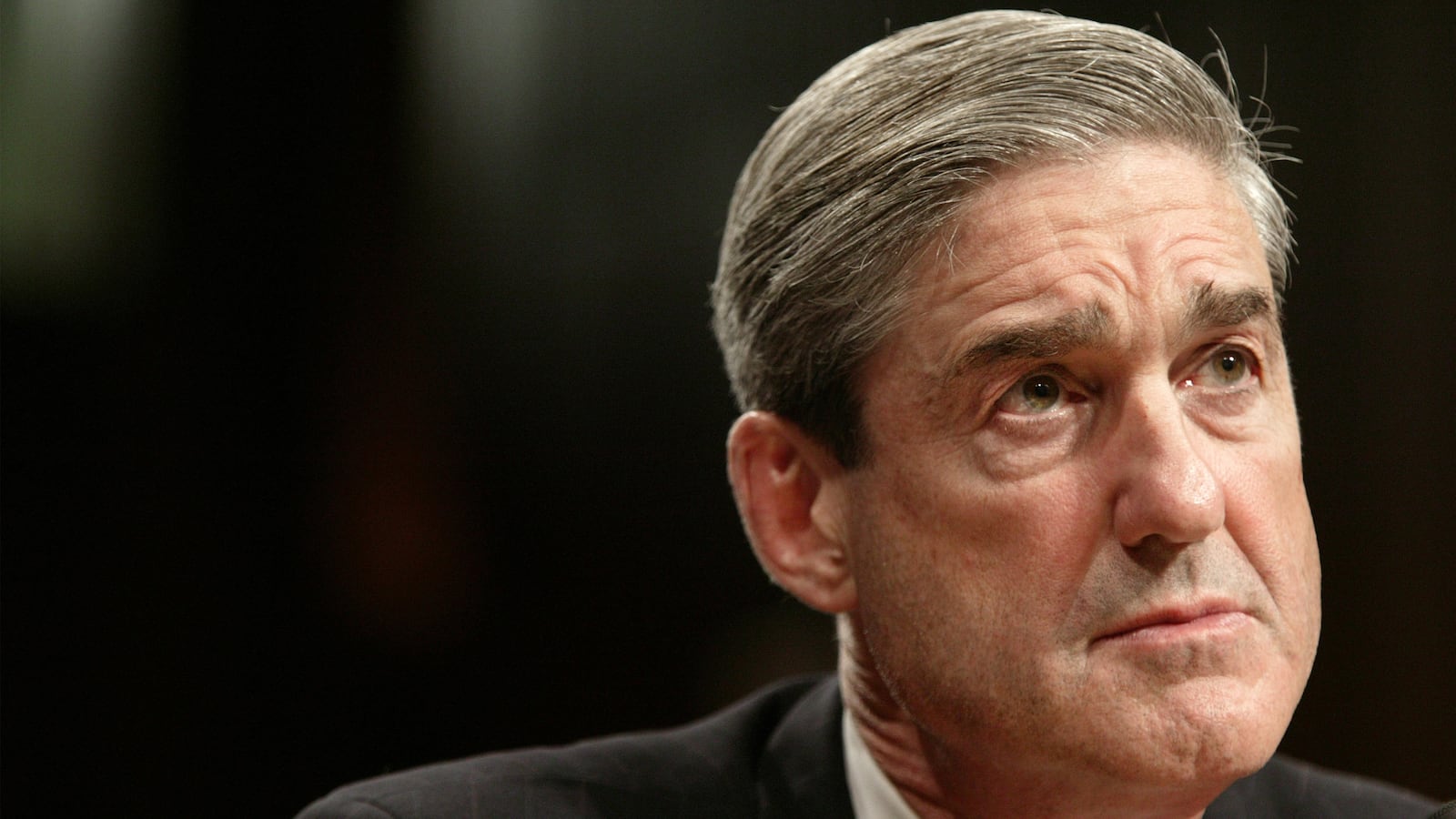The unsealing of the indictment charging former Trump campaign chairman Paul Manafort was only the second-most significant piece of news Monday.
The more significant news was the guilty plea of former Trump campaign adviser George Papadopoulos, who was arrested in July and entered a guilty plea about three weeks ago. The documents revealing those facts were also unsealed today. And the timing of the two being filed on the same day is likely no coincidence.
While the Manafort charges are important because of the role he played as one-time Trump campaign chairman, the charges themselves allege improper financial transactions and failure to disclose foreign lobbying activities, offenses that are unrelated to the Trump campaign. Rick Gates, Manafort’s business partner and a Trump campaign official, was also charged. The charges against Manafort may provide leverage to encourage him to cooperate in the investigation, but the charges against Papadopoulos relate directly to connections between the Russian government and the Trump campaign.
Papadopoulos has pleaded guilty to charges of making false statements to the FBI in connection with its investigation into Russian interference in the election. The false statements relate to his interactions with an overseas professor with substantial connections to Russian government officials and a female Russian national that be believed had connections to the Russian government. The documents state that the professor told Papadopoulos that he had “dirt” about Hillary Clinton in the form of “thousands of emails.” Papadopoulos admitted to lying about the timing and substance of his conversations with these individuals, and about his efforts to use the professor’s connections to arrange a meeting between the campaign and Russian government officials. Not quite collusion, but getting closer.
The Papadopoulos plea agreement makes reference to his cooperation. It is likely a strategic decision by Mueller to unseal both sets of charges on the same day. Mueller seems to be sending a message that cooperators get deals, and that Manafort faces additional potential criminal exposure. Earlier reports indicated that Mueller’s team had warned Manafort’s lawyers that he would be indicted. This information is often communicated to a target before indictment to provide an opportunity to cooperate before he faces criminal charges. The fact that he was indicted suggests that he has not cooperated to date.
Manafort may want to reconsider his decision in light of the news about Papadopoulos. A document attached to the plea agreement sets out detailed allegations of the offense. It identifies four Trump campaign officials without naming them as a “Campaign Supervisor,” two “High-Ranking Campaign Officials,” and a “Senior Policy Advisor.” This naming convention complies with Department of Justice policy protect the names of co-conspirators who are not being charged. But while the public does not know the identities of these four campaign officials, Manafort likely does. He may even be one of the unnamed officials in this document, filed on Oct. 5, before he himself was charged. It may also be that these officials are cooperating in the investigation or at least have an incentive to do so to avoid charges. Manafort may want to beat them to the table. Oftentimes, the early cooperators get the best deals.
The document includes a number of interesting factual assertions about these other officials. According to the document:
- Papadopoulos sent an email to the Senior Policy Advisor that “the Russian government has an open invitation by Putin for Mr. Trump to meet him when he is ready.”
- Papadopoulos emailed one High-Ranking Campaign Official “to discuss Russia’s interest in hosting Mr. Trump. Have been receiving a lot of calls over the last month about Putin wanting to host him and the team when the time is right.”
- The High-Level Campaign Official forwarded this email to another high-level campaign official with the note, “Let’s discuss. We need someone to communicate that DT is not doing these trips. It should be someone low level in the campaign so as not to send any signal.” Some reports indicate the official who sent this message is Manafort.
- The High-Ranking Campaign Official referred Papadopoulos to the Campaign Supervisor regarding planning a potential meeting with Russia “because he is running point.”
- Papadopoulos sent an email message to the Campaign Supervisor advising him of a request by the Russian Ministry of Foreign Affairs to see whether Trump was interested in visiting Russia.
- The Campaign Supervisor sent an email to Papadopoulos stating, “I would encourage you” and another foreign policy adviser to the campaign to “make the trip[], if it is feasible.”
These assertions suggest that other campaign officials may be in the cross-hairs of the investigation being conducted by Mueller.
In addition, in the motion seeking the order to seal the Papadopoulos documents, Mueller argued that disclosure could “discourage persons of interest, including individuals associated with the campaign, from speaking with investigators…”
This statement suggests that Mueller has his sights set on other subjects whose identities could be revealed by reading the Papadopoulos documents. Since Mueller chose to unseal these documents today, it seems likely that he has at least approached those officials to see whether they are willing to talk and learned their answers.
If these unnamed campaign officials are not cooperating already, they may be deciding to do so soon or face charges themselves. This may be Manafort’s moment to decide whether to he will be remembered in history as a defendant or a witness.






